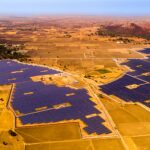Angirus: Revolutionising India’s Construction Industry With Eco-Friendly Building Solutions

Ecopreneur Kunjpreet Arora highlights the role of inventive green technology in utilising waste and mitigating construction pollution
India, a rapidly advancing global economy, is currently experiencing swift urbanisation, infrastructural growth, and extensive construction activities. The construction sector, a significant contributor to the nation’s GDP, has also led to a substantial surge in dust pollution, particularly affecting vulnerable demographics such as children and the elderly. A study by IIT Kanpur has attributed 38% of PM10 (particulate matter with a diameter of less than 10 micrometres) in Delhi’s air to construction dust. Mumbai faces a similar challenge, with construction activities contributing to about 70 per cent of the city’s air pollution, as reported by the Maharashtra Pollution Control Board (MPCB). Bengaluru, India’s Silicon Valley, witnessed a 23 per cent rise in PM10 levels between 2010 and 2020, with construction dust playing a significant role, according to the Karnataka State Pollution Control Board (KSPCB). Another study by the Tamil Nadu Pollution Control Board (TNPCB) found that construction sites contributed to 23 per cent of PM10 in Chennai’s air.
Construction waste and pollutants create a slew of problems but they can be addressed. For instance, while studying civil engineering in my hometown Udaipur, I observed a lot of plastic waste ending up around the periphery of lakes and by the roadside. There was also a significant amount of industrial waste degrading soil quality and groundwater. This served as a pivotal reason for me and my team subsequently to start working on green solutions. We devised the idea to convert this waste into building blocks and began to produce cubes, bricks, and paver blocks via a well-defined technology and machinery process that we developed. After 2019-20, we also initiated comprehensive research and development to fine-tune an end-to-end building process which then went on to birth Angirus.
Viable alternatives to natural resources
As is common knowledge, the construction sector significantly contributes to environmental degradation, with various pollutants exacerbating climate change. The extraction of raw materials from natural resources such as rivers, lakes, mountains, and soil further degrade these vital ecosystems, posing a threat to biodiversity. At Angirus, we are tackling some of these issues via Wricks, a product which is a combination of waste and bricks. Wricks utilises industrial and low-value plastic waste, reducing the strain on landfills by eliminating the need for cement plaster. This enhances sustainability, as Wricks is already 30 per cent stronger than traditional bricks and doesn’t require additional plaster for strength. The product’s thermal insulation aligns with India’s diverse climatic conditions, reducing energy consumption for heating and cooling. Products like Wricks exemplify how recycled materials, agri waste and even husk can be turned into viable alternatives to natural resources.
Leveraging technology for environmentally friendly practices
Emerging technologies, including 3D printing, are also garnering attention for their efficiency in material utilisation. The integration of these technologies not only helps resolve environmental concerns but also presents opportunities for ecopreneurs to innovate within the sustainable construction sector.
Drawing inspiration from these advancements, ecopreneurs can develop solutions that the construction industry can leverage for environmentally friendly practices, potentially revolutionising the entire sector. However, for them to successfully launch such initiatives, a coordinated effort from various stakeholders is also crucial.
Despite the implementation of sustainability measures by the Indian government, including norms, environmental policies, and strategies like EPR (Extended Producer Responsibility), challenges persist. The high initial cost acts as a deterrent to the widespread adoption of green solutions in India’s cost-sensitive market. Nevertheless, the substantial long-term economic benefits justify these investments. Collaborative initiatives, exemplified by India’s National Building Code (NBC) and the Indian Green Building Council (IGBC) aligning with green building policies, along with the integration of green building materials in construction, signify positive strides. However, there is a need for increased awareness and education. For instance, in cities like Bengaluru and Mumbai, there is a high level of awareness regarding IGBC policies. Conversely, in cities like Udaipur, there is a noticeable lack of awareness about these policies.
Bridging information gaps
The resistance from customers, rooted in familiarity with traditional materials, also underscores the necessity for comprehensive customer education. Although this transition may take time, government support and the engagement of organisations and stakeholders with a high-risk appetite and financial capacity can facilitate this transformative journey.
The core issue is that the existing awareness and education gaps concerning government policies and regulations in the market must be bridged. A more comprehensive approach, involving incentivizing the use of eco-friendly materials and providing subsidies, can expedite the shift towards sustainability. Currently, there is no policy for startups in green building norms. Encouraging such policies for startups that lack sufficient financial support will be hugely beneficial. Aligning development with environmental objectives is urgent and will also reaffirm India’s commitment to Sustainable Development Goals including SDG 11 which aims to build sustainable cities and communities with safe levels of particulate matter pollution.























































































































































































































































































































































































































































































































































































































































































































































































































































